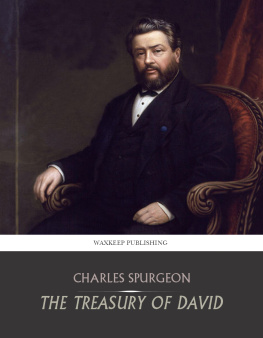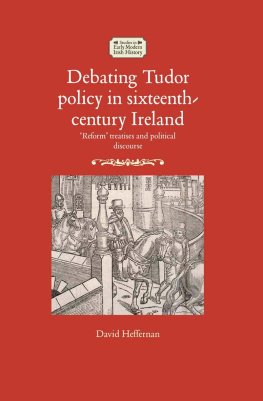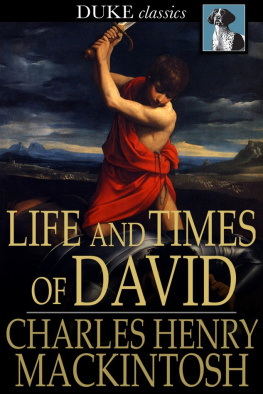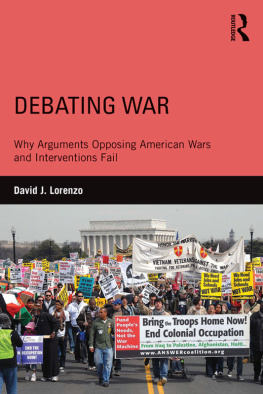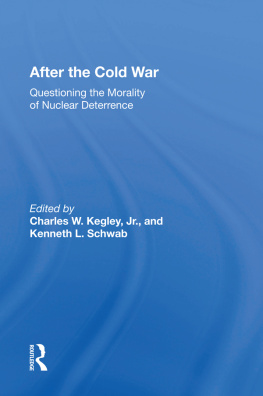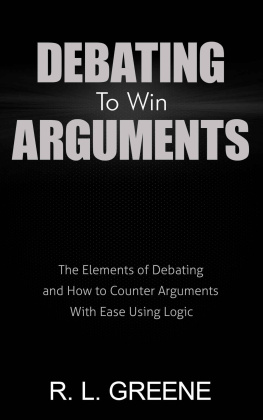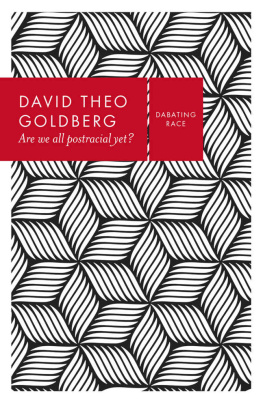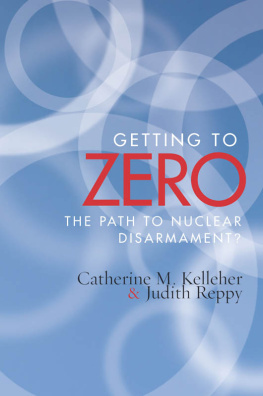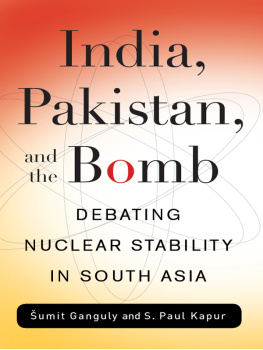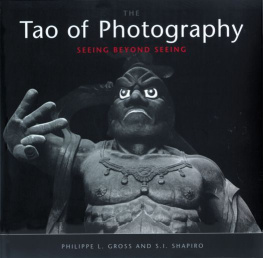Debating Counterforce
About the Book and Author
Since the U.S. presidential elections of 1980, debate has intensified between those who believe that nuclear weapons can only deter a war not intended to be fought and those who see nuclear weapons as an advancement in weaponry that allows for the waging and winning of a nuclear war. At the focal point of this debate is the rise of the counterforce doctrine-the concept of a nuclear attack exclusively against the enemys military forces. The author, in outlining the unresolved tension between the two approaches, examines the reasons counterforce has become widely accepted in U.S. nuclear weapons policies. He argues that many strategists are worried that the counterforce strategy is out of touch with the reality of the nuclear world and see it as merely a technical fix for a dilemma that may have no solution. Finally, Dr. David discusses the implications of adherence to the counterforce doctrine despite increasing popular support for avoiding nuclear war through deterrence and arms control.
Charles-Philippe David is professor of international relations and strategic studies at the Collge militaire royal de Saint-Jean, Quebec. He received his doctorate from Princeton University.
I would like to dedicate this book to my father, Senator Paul David, whom I hope I have taken after
First published 1987 by Westview Press
Published 2018 by Routledge
52 Vanderbilt Avenue, New York, NY 10017
2 Park Square, Milton Park, Abingdon, Oxon OX14 4RN
Routledge is an imprint of the Taylor & Francis Group, an informa business
Copyright 1987 by Taylor & Francis
All rights reserved. No part of this book may be reprinted or reproduced or utilised in any form or by any electronic, mechanical, or other means, now known or hereafter invented, including photocopying and recording, or in any information storage or retrieval system, without permission in writing from the publishers.
Notice
Product or corporate names may be trademarks or registered trademarks, and are used only for identification and explanation without intent to infringe.
Library of Congress Cataloging-in-Publication Data
David, Charles Philippe.
Debating counterforce.
(Westview special studies in military affairs)
Includes index.
1. Nuclear warfare. 2. United StatesMilitary policy.
I. Title. II. Series.
U263.D38 1987 355.0217 87-8110
ISBN 0-8133-7380-8
ISBN 13: 978-0-367-01360-8 (hbk)
With only a few exceptions, the debate over nuclear strategy has largely been dominated by practitioners and defense intellectuals in the United States. The particular merit of this sane assessment of the debate over American nuclear strategy is that the book is written from the vantage point of a young Canadian defense specialist who shows remarkable objectivity in presenting the major arguments and authors in the debate as well as in providing a critical judgment on what he sees as an excessive American reliance on technical solutions to complex defense issues. The books principal merit is in its admirable summary of the debate over the development of counterforce doctrine and damage-limiting strategies in the United States over the past forty years. David has read widely and perceptively, and he brings the debate up to date through the mid-eighties. He sees the argument as primarily one of conventionalists who seek to adapt conventional military strategies, such as the cult of the offensive, to nuclear weapons versus apocalyptics who emphasize the devastating consequences of any nuclear war, which must be deterred and prevented. For the apocalyptics, nuclear weapons are useful only in a deterrent mode.
In assessing the debate, David develops an argument about the American style of nuclear strategy, based on a technical view of warfare and a set of three political dynamics (misperception, technological functionalism, and bureaucratic politics) that drive the debate toward a counterforce strategy.
This study deserves to be widely read as it will introduce readers quickly to the terminology and basic issues in this often esoteric debate among the new technological elite of defense intellectuals. At the same time, the author provides a critique of the political environment in which the debate is conducted.
Those who are well informed on these issues will find this study valuable in its synoptic view of the main authors and their arguments as they have evolved over the past few years. The originality of the work lies in its exploration of a distinctly American ethos in which this emphasis on technical solutions comes to dominate the discussion. Here the views of a sensitive Canadian, educated in the United States and familiar with its history, culture, and decision-making institutions, may well stimulate an important debate about the problem of American alliance leadership, particularly in the Reagan administration. Canadians are close observers-and often sympathetic criticsof nearly everything that happens to their southern neighbor, and in this study we add an intensive critique on nuclear strategy and doctrine to a long literature of Canadian commentary on life in the United States. In this sense, the study captures an intra-alliance problem of the political wisdom of these made-in-America unilateral solutions to the thorny issues posed by the increasing sophistication of the worlds nuclear arsenals. To the extent that the book is read and pondered in the United States, it may go some way to respond to Adlai Stevensons lament that the United States often acts like a giant in need of a hearing aid.
John Sigler
Carleton University,
Ottawa, Canada
I would like to thank my parents, Senator Paul David and Dr. Yvette Lemire, my sister Hlne, as well as Jean Denis Roy, for their great understanding and support during this four year odyssey. I would also like to thank Ewa, my Polski dobry usmiech, who at times had difficulty putting up with my industriousness! I also deeply appreciate the advice and help given to me by Professor Bahgat Korany from the University of Montreal, who introduced my book to Westview.
I must also express my gratitude to my colleagues at the Collge militaire royal de Saint Jean, Qubec, especially to Captain Oaude Bergeron who made the social-logistics of it all happen, the Principal Jacques Castonguay, the Dean of Research Paul Emile Girard, Harold Klepak (who constantly corrects my English), Paul Letourneau and the many others who stood patiently by me during this great undertaking and offered the necessary wherewithal for this task.
I should also address my thanks to the following organizations which made this book possible: the Canadian Department of National Defence, as well as Princeton University, the Center for Science and International Affairs of Harvard University and the Center for International and Strategic Affairs of the University of California at Los Angeles, for the kind permission they all gave me to use their research facilities.
I must also thank John Sigler, my Masters advisor, for his Foreword as well as Michel Fortmann at the University of Montreal for his steady support.
I must also express sincere thanks to the Computer Service Center of the College and Mr. Richard Fournier from Honeywell who made the technical side possible; to Fay Lauber who relentlessly did the final typing and who got married right after the book was submitted; to Pierre Lhotelin, who acted as a research assistant and then went to France; and finally to Barbara Ellington, Bruce Kellison, Scott Perrizo, Libby Barstow, and Janet Miller of Westview Press.



